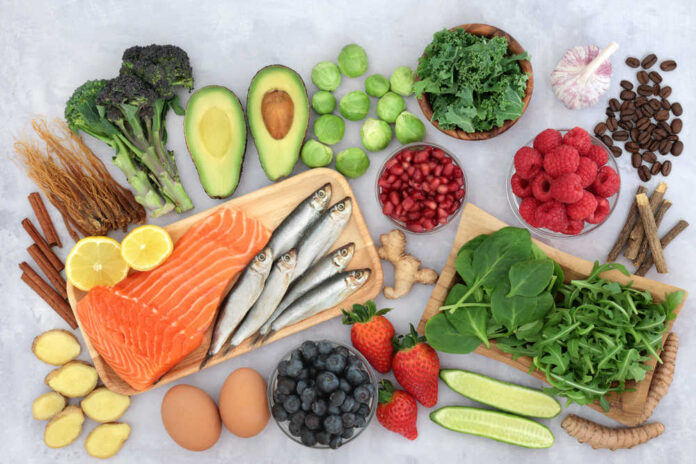
Inflammation is a process that your body uses to protect itself. It is a natural response to injury, infection, or any other type of stress.
Inflammatory cells travel to the site of injury or infection and release chemicals that cause the surrounding tissues to swell. This helps to protect the area and allows your body to heal.
The inflammation process can be helpful in the short term but can also cause problems when it persists for a long period.
Chronic inflammation can lead to tissue damage, pain, and other health issues, such as:
- heart disease
- type 2 diabetes
- arthritis
- Alzheimer’s disease
- cancer
- psoriasis
- depression
Foods That Increase Inflammation
Several foods and ingredients are known to increase inflammation, including:
- refined carbohydrates
- added sugars
- red meat
- saturated fat
- trans fat
- salt
If you tend to eat a lot of these inflammatory foods, it may contribute to chronic inflammation and increase your risk of developing health problems.
By reducing your intake of these foods and prioritizing anti-inflammatory foods instead, you may reduce joint pain, improve your heart health, and lower your risk of other chronic diseases.
What is an Anti-Inflammatory Diet?
There isn’t one specific anti-inflammatory diet program. It’s more of a general description of diets that prioritize foods known to have anti-inflammatory effects.
This includes:
- Fish
- Vegetables
- Fruit
- Beans
- Whole grains
- Nuts and seeds
- Herbs and spices
Plant-based foods are high in fiber and antioxidants, both beneficial for gut health and reducing inflammation. They are also low in saturated fat, trans fat, and added sugars, all known to increase inflammation.
Additionally, fish, nuts, and seeds are excellent sources of omega-3 fatty acids. These essential fatty acids are known to have anti-inflammatory effects and are important for maintaining heart, skin, and brain health.
Does It Actually Help?
Two of the most well-researched anti-inflammatory diets are the Mediterranean diet and the DASH (Dietary Approaches to Stop Hypertension) diet.
Both of these diet strategies prioritize fish and plant-based whole foods. They also limit refined carbohydrates, red meat, saturated fat, and added sugars.
Many studies have shown that both diets can help reduce inflammation, improve heart health, and lower the risk of chronic diseases.
Even if you’re unable to fully commit to an anti-inflammatory diet, making small changes to your diet can help. Here are a few tips:
- Replace sodas and juices with unsweetened green tea or herbal tea.
- Replace white bread with whole-grain bread.
- Add more fish to your diet.
- Make vegetables the main entree instead of a side dish.
- Use less salt and more herbs and spices.
- Cook with vegetable-based oils instead of butter.
- Limit your intake of red meat and processed meats.
- Snack on fruit instead of manufactured snacks.
If you have chronic inflammation or other health conditions, you must talk to your doctor before making any big dietary changes. They can provide specific guidance on what changes would be best for you.






















